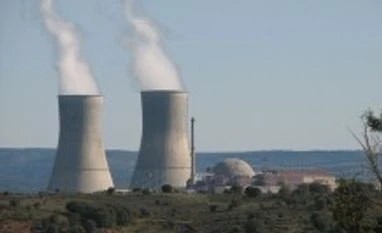Also secretary of the department of atomic energy, he said so at the the ongoing international ministerial conference organised by the International Atomic Energy Association.
Domestic strategy, he said, was based on utilisation of India's modest resources of uranium and the abundant one thorium, meant for large-scale deployment in the long term.
Also Read
Sinha said the constraint of depleting fossil fuel reserves, with the need to shift to low carbon energy sources for addressing concerns related to global warming, would drive the country's policy. "It is here that nuclear energy becomes a very important option,'' he declared.
On current projects, he said construction was on of four indigenously designed 700 Mw Pressurised Heavy Water Reactors (PHWRs), two each at the existing sites of Kakrapar in Gujarat and Rawatbhata in Rajasthan. In addition, 16 more PHWRs of 700 Mw capacity each are to be progressively taken up for construction (twin or quadruple units) at five different inland sites already identified. India is also planning to set up PWRs of indigenous design by the mid 2020s.
He mentioned the present state of the 2,000 Mw Kudankulam project in Tamil Nadu, being developed under the nuclear co-operation deal between India and the Russian Federation. Unit-1 is in an advanced stage of commissioning and the second unit is envisaged to follow about six months after.
"Additional options for expanding installed capacity through import of Light Water Reactors have been envisaged, and related discussions are underway with identified vendors, for setting up these reactors at designated coastal sites, including Kudankulam,'' said Sinha.
Further, the first commercial Prototype Fast Breeder Reactor of 500 Mw capacity is at an advanced stage of completion at Kalpakkam (Tamil Nadu).
After the Fukushima-Daiichi accident in Japan, the Nuclear Power Corporation and the Atomic Energy Regulatory Board had independently conducted extensive safety reviews, he said. Further augmentation for safety of operating units under "extreme external events" had been taken. He said India will continue to contribute to the IAEA's effort in enhancing international cooperation on nuclear safety.
)